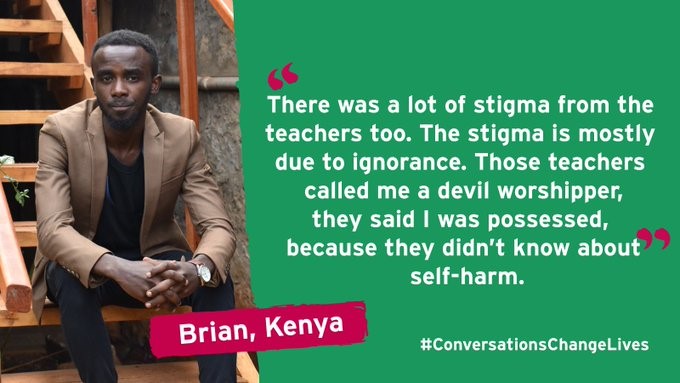Upending the usual model: when a Kenyan partner sub-contracted a UK NGO
Recently, the international development sector has been rightly awash with ideas and good intentions towards shifting power and decolonisation.
Although there are already commendable moves to put this into practice, we still need to do more. But, what if UK NGOs were contracted by partners to deliver specific services when partners decide those UK NGOs can add real value and expertise?
Basic Needs Basic Rights Kenya (BNBR) contracted CBM UK in this way.
In this article, we want to share the advantages of this approach and challenge ourselves and others to do more of the same in future.
The partnership
We (BNBR and CBM UK) have a shared history of working together, particularly once BNBR became an independent Kenyan civil society organisation. After successfully working together on the Time to Change Global project in 2019-20, BNBR applied directly to Comic Relief for a second phase. BNBR then approached CBM UK for help with certain aspects. This had many advantages:
- Real power shift: This came about through a series of conversations, and we were both very conscious of the power dynamics throughout. However, as BNBR had control over funding, media strategy, and project cycle and were the contract holder accountable to the donor, it made the power shift and decision-making much more real and authentic. BNBR decided what activities they wanted CBM to manage and CBM delivered. A spirit of close collaboration and trusted partnership oiled the wheels and made the process much easier.
- Intermediaries are still important: It became clear throughout that CBM still had significant value to add in certain roles (see Peace Direct’s report), such as coach and co-learner, convenor and, of course, sidekick. BNBR wanted CBM’s help in certain activities, such as engaging academic institutions on data analysis, safeguarding training, and managing high profile events. CBM also managed the external evaluation process, though BNBR made the final decisions. Critically, as BNBR had contracted CBM and decided what it wanted CBM’s support on, these intermediary roles, and their underlying power dynamics, were well-defined and clear in practice, rather than just being an aspirational framework only.
- More risk, more support: Increased risk is often cited by donors as a reason not to make grants to local organisations. By taking on this grant, BNBR took on greater risk, given the size of the project was a greater percentage of the organisation’s annual budget than any other it had had. This was a big decision, but it helped BNBR to know that CBM was equal as an accountability partner and for coaching. CBM also helped BNBR when requesting changes or additional budget from the donor, support that was vital for BNBR’s confidence in leading negotiations with donors for the first time.
What would we have done differently?
Due to external factors outside our control, the process was slow, and BNBR contracted with CBM only halfway through the project. It would have been better to define all the roles and responsibilities from the beginning, although it just wasn’t possible in this case.
What was it like for both partners being in a different position from normal practice?

It was pragmatic for BNBR to have control and not to be obliged to have approval for on-the-ground changes of plans, activities or budget lines. At the same time, we knew we needed CBM’s support to deliver. In future, it’s important we continue to tap into the experience and strengths of our northern partners. – Rosemary, BNBR
At the outset, CBM recognised that BNBR were better-placed to lead (despite the usual pressure NGOs have to win grants). Once the decision of actively conceding power was taken, the process became a genuine and refreshing opportunity to walk the talk – made easier by the close and long partnership with BNBR. – Matthew, CBM UK
There was huge value in leveraging the strengths of both partners and being more intentional about what this meant. We both learnt that it will be easier to approach each other (and, for CBM, other partners across countries where we work) in future.
If we are truly committed to shifting power as a sector, what’s stopping us from doing more of the same? If you’re not already, start talking with your partners about how they can build on your partnership, experience and reputation, to leverage and further their own vision and mission.
Change is possible if we only have the courage and commitment to it.
Category
News & Views
